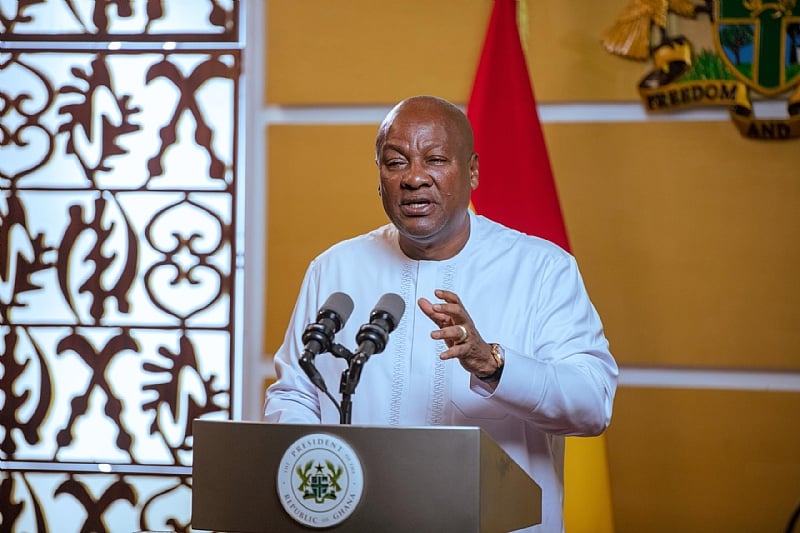President John Dramani Mahama’s recent national address shed light on his administration’s commitment to transparency and accountability, particularly concerning the controversial National Cathedral Project and inherited financial scandals from the previous administration. The President announced that Deloitte & Touche, a renowned international audit firm, is conducting an independent review of the Cathedral project, with a comprehensive report expected by the end of May. This move aims to address public concerns regarding the project’s escalating costs and perceived lack of transparency, which have fueled criticism about the allocation of public funds, especially amidst economic challenges. The project’s hefty $58 million expenditure as of 2022 has drawn sharp rebuke from critics who view it as a misappropriation of resources. This audit signals the current administration’s intention to scrutinize the project’s financial management and ensure accountability for public funds.
The President’s address also underscored his administration’s determination to investigate and address several high-profile financial and governance scandals inherited from the previous New Patriotic Party (NPP) government. These investigations aim to uncover the truth behind these scandals, hold those responsible accountable, and prevent similar occurrences in the future. The probes target a range of issues, reflecting a comprehensive approach to tackling corruption and mismanagement. Among the key investigations is a probe into the collapse of indigenous banks and other financial institutions, an event that significantly impacted Ghana’s financial system. The Ministry of Finance is spearheading this investigation, seeking to understand the factors that led to the collapse and identify any potential wrongdoing.
Another significant investigation focuses on the Power Distribution Services (PDS) scandal, which disrupted a $190 million tranche under the US Millennium Challenge Corporation (MCC) compact in 2019. This agreement was designed to bolster Ghana’s energy sector by improving infrastructure and financial viability. However, irregularities within the PDS deal led to the suspension of the funds, prompting the current administration’s Ministry of Energy and Green Transition to revisit the matter. The objective is to uncover the full extent of the irregularities and ensure accountability for any misconduct.
President Mahama emphasized his administration’s unwavering commitment to prosecuting those found culpable in corrupt dealings, regardless of their position or influence. He highlighted that several individuals have already been questioned in connection with expenditures related to the 13th All African Games hosted in Accra. Furthermore, the Attorney-General has filed 11 charges against a former Director-General of the National Signals Bureau and other officials for alleged offenses. These actions demonstrate the administration’s seriousness in pursuing justice and deterring future corruption. Ongoing investigations into the Accra SkyTrain deal and the National Service Scheme ghost-names scandal are also underway, with charges expected to be filed soon.
In a significant step towards promoting clean governance, President Mahama has introduced a new Code of Conduct for all government appointees. This code aims to establish and enforce the highest ethical standards, promote transparency, and ensure accountability in public office. It serves as a framework for ethical behavior and provides clear guidelines for appointees to follow. This initiative reflects the President’s commitment to building a government that is beyond reproach and restoring public trust in institutions. By setting clear expectations for ethical conduct and enforcing accountability, the Code of Conduct seeks to create a culture of integrity within the government.
The President’s address serves as a clear signal of his administration’s commitment to tackling corruption, promoting transparency, and ensuring accountability within the government. The ongoing investigations, the independent audit of the National Cathedral Project, and the introduction of a new Code of Conduct for appointees all demonstrate a concerted effort to address past issues and build a more transparent and accountable future. These actions aim not only to hold individuals responsible for wrongdoing but also to create a system that discourages corruption and fosters public trust. The President’s emphasis on upholding the rule of law sends a strong message that no one is above the law and that corrupt practices will not be tolerated. The ultimate goal is to restore public confidence in government institutions and create a more equitable and just society for all Ghanaians.














